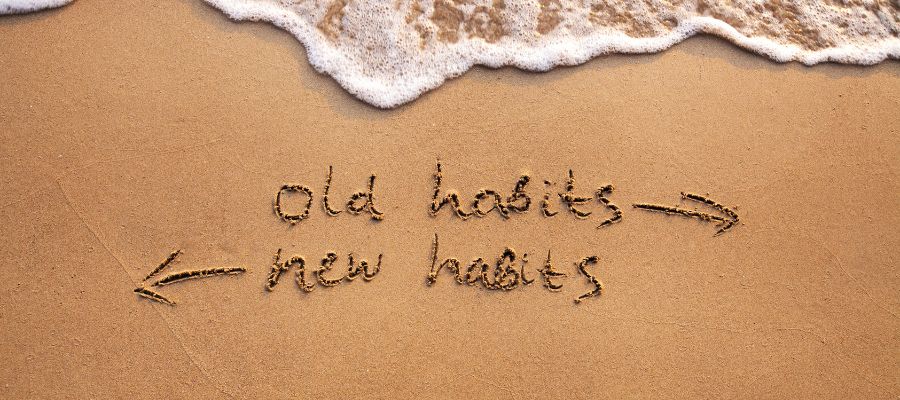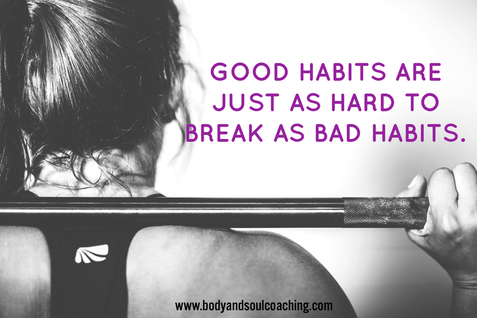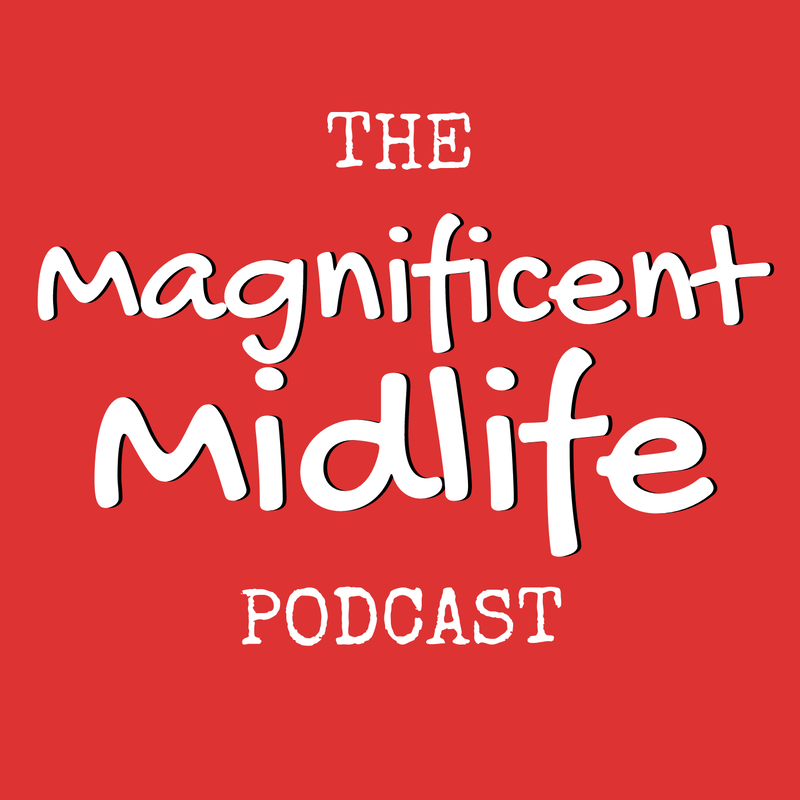|
Habits, we’ve all got them. Habits are described in the dictionary as an acquired behavior pattern regularly followed until it has become almost involuntary. Good or bad, you can see how it could be difficult to change your ways if you are acting involuntarily or unintentionally. Have you ever made a conscious decision to stop eating late at night, only to suddenly find yourself sitting on the couch, watching TV and there in your hand is a bowl of ice cream? Or maybe you’re walking in the door to your house after a long day at work, take off your coat, go directly to the pantry and grab a handful of chips. How about during the day when you’re talking to a co-worker who has a bowl of candy on her desk and you ‘unintentionally” eat 4 of them before your conversation is over. All of these are habits, we do them with out thinking and quite honestly we do them even when we are “thinking”. Begin with Awareness of your habitsSo how do we change these behaviors? We must consciously make the decision to eat better, exercise more, start meditating, use the stairs, ban all sweets, and yet… something is stopping us. Our brains are amazing. It lets us know what we want to do before we are even aware of making a conscious decision. You see, when you’ve been performing a certain behavior or a task for a long period of time, you’ve created a neurological pathway that leads you down that path quite easily. Think of it like a cleared path through the woods. It’s much easier to walk down the cleared path than it is to trudge through the woods trying to create a new path. That’s going to take too much work and too much time and a decision will need to be made. So, our brains choose the path of least resistance, the automatic response that requires no decision to be made. According to the book The Power of Habit by Charles Duhigg, habits are created by following a "habit loop" which includes a cue, a routine, and a reward. The cue being some sort of trigger that reminds you to perform the routine and once the routine is completed, there needs to be some sort of reward whether it's an emotional, spiritual or tangible. All of this takes time to create and it's going to take some work, but it's not impossible. It's just going to take consistency and practice. But the very first step is awareness. Making yourself aware of when, under what circumstances and what feelings are attached to the behavior you are trying to stop, will help you to understand why you’re doing it and in turn could help you to stop. Take some time to think about the why behind your behavior. For example, if you are eating late at night, is it because you're hungry, your bored, you're looking for comfort, or is it "just a habit" Next you need to create a new path! Replace the old habit with a new habitBefore you try to get rid of the old habit, replace it with a new one. Trying to just stop what you’re doing leaves you with a big void needing to be filled. Let's go back to the example of late night eating. Instead of snacking on chips or ice cream, have a cup of tea instead; too big of a jump? Maybe you could switch to a small bowl of popcorn (plain) or chew some gum. Personally I like to do something with my hands, like knitting. It’s important to know what you will and won’t be able to live with. What ever you decide to do instead of the “old habit”, you’ll need to do this for a while in order to clear the path and create a newer, healthier habit. This is the routine part of the loop so do your best to be consistent with each step. Be patient and stick with it for a while. Once the new behavior has become a habit, it will be just as hard to break the good habit, as it was the bad habit as your brain shifts from making a decision to automatic behavior. And don't expect to take just 21 days, it really depends on the habit; how complex it is and how long you've held on to this behavior. Keep in mind that we all slip up now and then. This is called a lapse. What you don’t want to happen is have that lapse turn in to a relapse. If you mess up, accept it, let go of beating yourself up, (total waste of energy) and move on. The quicker you can make this turn around, the quicker you’ll be back on the right path clearing the way for the next time. Reward yourself for the new habitTo finish up the habit loop and instill that new habit into your lifestyle, there needs to be a reward for your behavior. Just make sure your rewards are aligned with what you are trying to accomplish. For instance, if you are trying to lose weight, don’t reward yourself with food. Instead try rewarding yourself with something that will bring you closer to living your new healthier lifestyle. Here are a few ideas for rewards:
Note that all of these rewards fit into the new healthier lifestyle you’re trying to create. The other type of reward is the emotional reward. What feeling do you get from following through with your new habit? Do you feel energized, grounded or did you relieve some pent up stress? Did you end your workout session feeling empowered?
All of these feelings will also help you to follow through with your new routine eventually creating an automatic habit. Having trouble coming up with solutions to your particular situation? Why don’t you join my private Facebook group, Weight Loss After 50? It’s FREE, and a wonderful source of information and support. Your first steps are to read the pinned post & introduce yourself to the group. Your next step is to show up, get some support, and give some support. Be sure to turn on notifications so you don’t miss my live broadcasts. This is a wonderful, safe community to share both your wins and your struggles and learn the truth when it comes to losing weight and getting in shape after 50. AND... I've also got a mini challenge running each week to keep you on your toes.
0 Comments
Leave a Reply. |
authorLisa Swanson is an ACE Certified Health Coach, Personal Trainer and Orthopedic Exercise Specialist as well as a certified AASDN and PN level 1 nutritionist. With over 35 years experience helping people turn their lives around, she is on a mission to provide relevant and useful knowledge to help women in midlife reach their goals. featured onCheck out my interview with the Magnificent Midlife podcast on staying fit and healthy long-term.
Categories
All
|
What I DoAt Body & Soul Coaching I empower women over 50 to lose weight and feel confident without deprivation diets or spending hours in the gym.
|
Company |
|
|
© COPYRIGHT 2022. ALL RIGHTS RESERVED.
|
Website Design by My Personal Trainer Website
|




 RSS Feed
RSS Feed